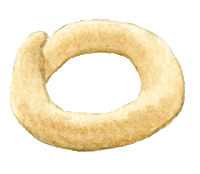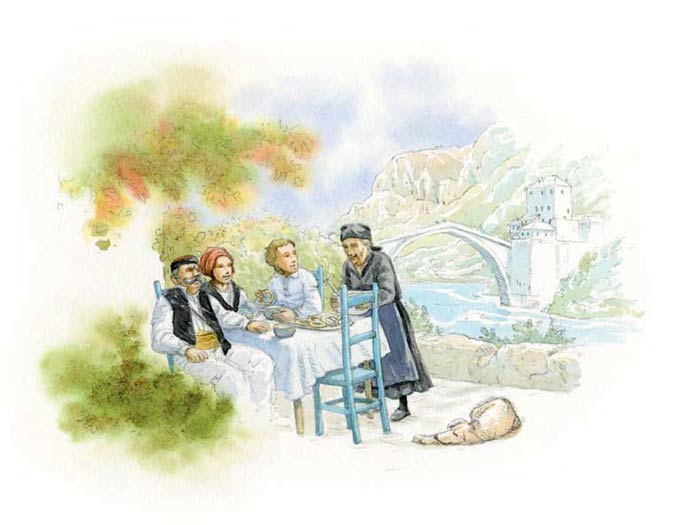Baškotin

Form: Ring-shaped
Country of origin: Croatia
What distinguishes it from other methods of bread making: Cooked twice
Category of bread: (4) Vast number of “distant relatives” in all corners of the world, everywhere where there are seafaring peoples
Particularity: Stands up to test of time, to the point that sailors often called it “molar breakers” or “tooth dullers”
Ingredients: Wheat flour; fat; water; salt

Croatia
In Croatia, like in most maritime countries, there is a tradition of making sea biscuits. For those who went away on long voyages, it was necessary to pack food that would last for the entire passage. Twice-cooked bread (crackers) is completely dry, and became a loyal companion of sailors and soldiers alike. The Italian biscotti, which are also twice-cooked, are therefore first cousins to this family of dried bread on which time seems to have no effect, apart from a few maggots. Because of the maggots, once the sailors removed the crackers from the barrel where they were kept or where they molded, sailors on long voyages were obliged to run them over the flames before eating them.
Baškotin, a slice of wheat bread that has been cooked twice in the oven, and baškot, which is ring-shaped, are crackers which can easily break a tooth unless they are soaked ahead of time in milk, or dunked in coffee or a sparkling wine like Prosecco. Italy is as far away as the distance a champion swimmer can go, after all.
Tradition has it that these Croatian sea biscuits were originally made by the Benedictines at the St. Marguerite convent on the island of Pag. Still lived in, the convent still jealously maintains the memory of the old days when the sisters watched over the needs of the sailors. Perhaps they were thinking of those that the sea isolated from the community as time that they might have spent face-to-face with God. One thing is certain: the veneration the Croatians have for this bread might well explain the fact that the nuns had conceived and prepared this bread for the sailors. If a piece of bread is dropped on the floor, everyone hurries to pick it up. They kiss it, as if asking forgiveness then put it in their mouth, along with, for example, a chunk of the renowned cheese made on the island of Pag, the paški sir.

